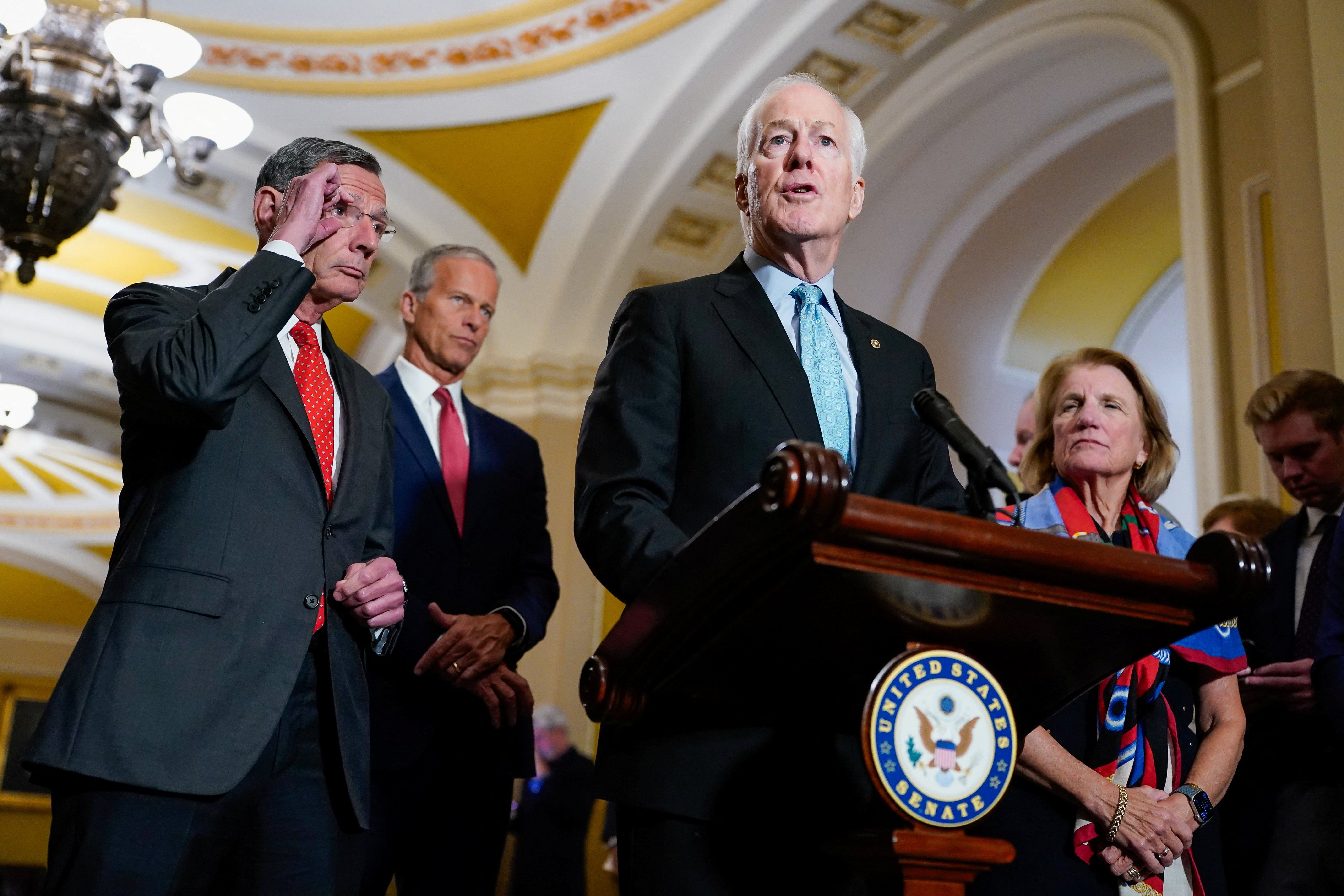Politico reports the GOP’s decision to go nuclear for the Trump confirmation process this week is “the latest hammer lawmakers have taken to the once collegial nominations,” and it signals more problems down the road.
“Senators mostly agree the process for confirming a president’s nominees is broken. They also know it could easily get worse,” writes Politico’s Jordain Carney, speaking on Republicans’ “nuclear” rules change allowing most of President Donald Trump’s nominees to be confirmed in groups.
Carney said the move could turn the “rancor … up even higher in a scenario the Senate hasn’t faced since it first changed the confirmation rules along party lines more than a decade ago: a newly elected president facing a majority of a different party.”
READ MORE: 'Something is wrong': MAGA pundits say Trump is 'lying to us' about Charlie Kirk shooting
Carney writes split government colliding with the first year of a president’s tenure has been rare in recent history, having not happened since 2001, when George W. Bush faced an “ultra-tight Senate margin that flipped the majority back and forth between parties.” But in the two decades since, the nominations process in the Senate has “grown consistently more partisan, with more hurdles and longer wait times for confirmations.”
The Senate caught a hint of where things were going in the nomination war in 2015 and 2016, when Republicans held the majority during the final two years of former President Barack Obama’s term. The hostile Republican Senate put Obama’s nomination of attorney general nominee, Loretta Lynch on hold for five months. Under that same president’s term, then-Majority Leader Mitch McConnell decided to hold Obama’s nomination for Supreme Court hostage so the seat could be filled by a Republican president.
“Democrats warned Republicans they were setting a precedent that could be used against them when they are out of power,” wrote Carney, with Senate Minority Leader Chuck Schumer saying it “won’t take very long for Republicans to wish they had not pushed the chamber further down this awful road.”
Republican senators defend their decision to go nuclear, but Sen. John Cornyn (R-Texas) told Politico that the possibility of interbranch gridlock was a problem the Senate would eventually have to deal with.
“Nothing’s easy,” Cornyn said.
READ MORE: 'Deeply troubling': Military expert warns Trump is unilaterally 'deciding to kill people'
